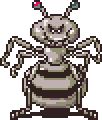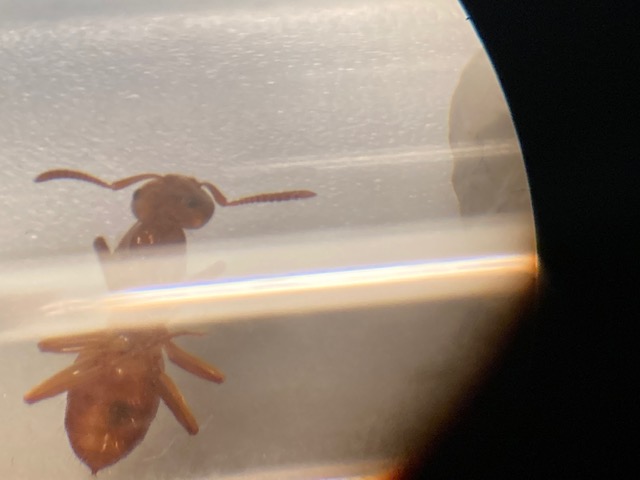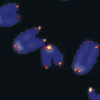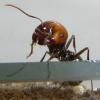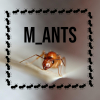I recently caught two queen ants each possessing wing scars walking along a trail in the woods. They were identified as Lasius interjectus in this thread: https://www.formicul...21/#entry190309
Based on further research (and info provided by responses in that thread) it was made clear to me that the only way either of these queens would survive, was if they had developing brood (as much as possible) as well as a few workers, from a non-parasitic Lasius sp. colony, in order to begin their egg laying.
I put the queens each in test tubes with water and partial shade, so as to give them a light gradient (about 90% covered with aluminum foil, 10% exposed to light)
I fed them each a bit of honey water --one even drank directly off of the end of the toothpick. They were kept in an upstairs room in my house. Temperatures there range from 69 F to 72 F depending on the temperature outside.
The next day, one of the queens had died.
The day after, the second queen had died.
My plan (prior to them both dying) was to go out on the weekend in search of a suitable Lasius sp. colony to raid for brood. People said they should survive a while on their own, prior to being introduced to foreign brood/workers to found their colonies.
I searched the "Ant Care Sheet" section of this website and could not find anything for Lasius interjectus. Does anyone have any idea as to why they both died so rapidly? What did I do wrong?
I know Lasius interjectus is not a "beginner species" but I thought I was doing everything right, and to have both queens die within the first 48 hours seems odd.
For reference, both queens were collected near a State Park, where I do not believe any insecticides or herbicides would be employed.
So, if I find a queen of this species again, what should I do differently?

